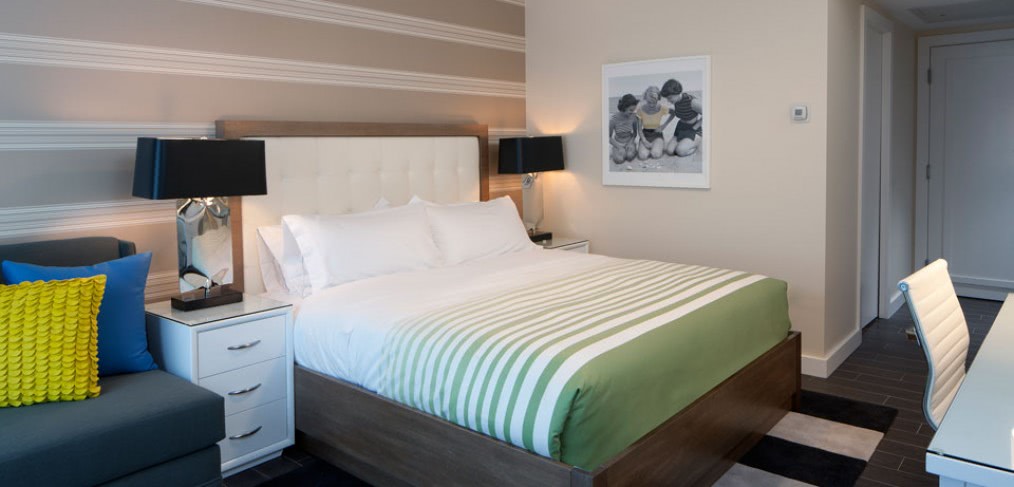
Soft Brands: Chaos is Good!
Hilton’s Canopy and Curio. Marriott’s Moxy, AC Hotels and luxury level Autograph Collection. Hyatt’s Centric. Choice Hotels’ Ascend Hotel Collection. Starwood’s Luxury Collection.
The list of soft brand launches by major hospitality industry players goes on and on. Some call it confusing, some call it orchestrated chaos, but one thing is undeniable: soft brands, also known as lifestyle brands, are revolutionizing hospitality as we know it and allowing for a level of flexibility we’ve never seen before.
With new brands regularly popping out of the woodwork, industry players are still figuring out exactly what this means for business. Consultants and the financial sector are hesitant: what if the product isn’t well received? Is this confusing for the consumer? Will traditional standards and brand power be compromised or diluted?
As the architects and designers who shape these spaces, we have a few thoughts on the matter.
Creating Competition and Choice
On the surface, the appeal of soft brands seems to be all about competition: competing to be current, to be the leader in a specific market when that segment first starts to gain traction. To be in that coveted position, the brand has to be the one to create buzz and light the traveler’s world on fire with an authentic and accessible experience unlike any they have known before.
One example is citizenM, a new brand of trendy boutique hotels. The name references “Mobile Citizens of the World,” and the brand is “drowning hotel clichés” with one-minute check-ins and check-outs, free movies and Wi-Fi and 24-hour food and beverage service for independent travelers who “share a respect for different cultures.” This is citizenM’s way of one-upping the competition.
But the bottom line is this: the chaos creates more choice, which translates to a unique, differentiated experience. This is the messy vitality we strive for! It’s what keeps place-making fresh and consumers curious, and the data show that this is what today’s traveler seeks, in part thanks to changing demographics and technology—especially well-educated, well-traveled consumers who are also active on social media. To them, brand consistency = bland.
Instead, hotels have to keep up with travelers in a global marketplace that is changing, and fast. A recent report by Skift talks about the hospitality industry as the “big crucible” where new ways of doing customer relations and promoting local discovery are playing out in front of an audience that tends to be self-serving and mobile-dependent—and we couldn’t agree more.
Lifestyle brands hold particular appeal for the demographic everyone is chasing after: millennials (check out this recent New York Times article). It’s not just about broadening demographic reach. Tapping into this market means reaching a consumer base during prime time for building brand loyalty. A millennial who books a room at Moxy may be more likely to stick with the Marriott name years from now, when the polished concrete floors and trendy bar scene lose their charm.
Changing, Not Imploding
So, the race to launch new lifestyle brands may resemble a wild gold rush with little concern for long-term impacts. But the fact of the matter is that launching a soft brand is not for wimps. While the brand may be creating a new image, it is also putting its neck and its long-standing reputation on the line. Creativity paired with thoughtful risk-taking? We’ll take it.
Yes, the world of hotels is changing. But it is not imploding, though many in the industry want to roll back the brand roll-outs in an attempt to do damage control. The locavore in all of us demands diversity and authenticity, and this is what lifestyle brands can give us: properties that reflect and immerse the traveler in local culture in a way that the cookie-cutter hotels of old can’t do. Rather than creating confusion, it’s about creating choice, oftentimes at a more affordable price.
Chaos is good! Keep it coming, brands—we love it!
